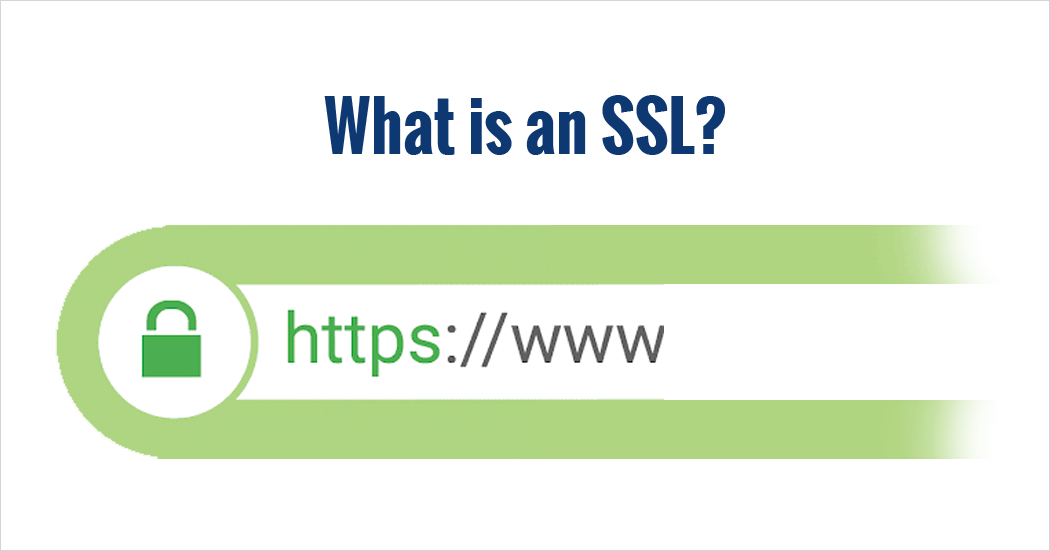Why you need an SSL Certificate for eCommerce Website?
When running an eCommerce website, security should always be a top priority. One of the most important aspects of website security is ensuring that sensitive information, such as customer data and payment details, is protected during online transactions. This is where an SSL (Secure Sockets Layer) certificate comes in. In this article, we'll explain why having an SSL certificate is crucial for your Magento 2 eCommerce store and how it benefits both your business and your customers.
What is an SSL Certificate?

An SSL certificate is a digital encryption tool that secures the connection between your website and the user’s browser. It ensures that all data transmitted between the server and the browser remains private and protected from hackers. SSL certificates also authenticate the website’s identity, verifying that the site is legitimate and trustworthy. Websites with an SSL certificate display a padlock symbol in the browser's address bar and use "https://" instead of "http://" in their URL.
Key Reasons Why SSL is Essential for Your eCommerce Store
For Magento 2-based eCommerce websites, SSL certificates are vital for several reasons. Let’s dive into the top reasons why you should secure your online store with SSL.
1. Protect Customer Data
With an eCommerce website, you collect sensitive customer information such as names, addresses, phone numbers, and, most importantly, payment details. Without SSL encryption, this data is vulnerable to interception by cybercriminals. By using SSL, you ensure that all sensitive data shared between the customer and your store is encrypted and safe from malicious actors.
2. Build Customer Trust and Confidence
Trust is the foundation of any successful eCommerce business. If a customer sees that your website is secure, they are more likely to make a purchase. When your website has an SSL certificate, customers will see the padlock symbol and "https://" in the URL, which reassures them that their personal and payment information is safe. A website without SSL can make users hesitant and discourage them from completing transactions, resulting in lost sales.
3. Improve SEO Rankings
Google has confirmed that having an SSL certificate is a ranking factor in its search engine algorithm. Websites with SSL are more likely to rank higher in search results compared to those without it. In fact, Google Chrome marks non-SSL sites as "Not Secure," which can hurt your site’s credibility and visibility. Securing your Magento 2 store with SSL helps boost your SEO efforts and gives your site a competitive edge.
4. Meet Industry Standards and Compliance Requirements
If you accept payments on your website, it’s important to comply with the Payment Card Industry Data Security Standard (PCI DSS). One of the requirements for PCI compliance is the use of SSL to encrypt payment data. Failing to implement SSL can lead to penalties or loss of payment processing privileges. Therefore, SSL certificates are not just a security measure—they are a legal necessity for eCommerce stores that handle credit card transactions.
5. Protect Against Man-in-the-Middle Attacks
Man-in-the-middle (MITM) attacks occur when a hacker intercepts the communication between the website and the user. This is a major security risk for eCommerce sites, as attackers can steal sensitive information such as login credentials and credit card numbers. SSL certificates prevent MITM attacks by ensuring that all data exchanged between the browser and the server is encrypted, making it impossible for hackers to tamper with or steal the data.
6. Increase Conversion Rates
When customers feel that their personal data is safe, they are more likely to convert. An SSL certificate not only provides security but also enhances your website’s professionalism and trustworthiness. With SSL, you can significantly increase your website’s conversion rates, as more customers will confidently complete their purchases without fear of data theft.
7. Ensure Secure Online Payments
Online payment gateways such as PayPal, Stripe, and credit card processors require SSL encryption to ensure secure transactions. Without SSL, customers will not be able to make secure payments, which could result in cart abandonment and lost revenue. SSL certificates are crucial for offering seamless, secure payment experiences to customers.
How to Install an SSL Certificate in Magento 2
Installing an SSL certificate in Magento 2 is relatively straightforward. Here’s a general step-by-step guide:
- Purchase an SSL Certificate: You can purchase SSL certificates from a trusted Certificate Authority (CA) like Comodo, DigiCert, or Symantec.
- Install the SSL Certificate: Once you’ve purchased the SSL certificate, install it on your server. You may need your web hosting provider's help for this process.
- Enable SSL in Magento: Log in to the Magento Admin Panel, go to Stores > Configuration > Web, and enable SSL under the Secure section. Set both the Secure Base URL and Use Secure URLs on Storefront to "Yes."
- Redirect HTTP to HTTPS: To ensure that all traffic is encrypted, configure your .htaccess file to automatically redirect HTTP traffic to HTTPS.
- Test SSL Installation: After installing the SSL certificate and configuring Magento 2, test the setup by visiting your website using "https://" in the URL. The padlock symbol should appear next to the URL in the browser.
Conclusion
Securing your eCommerce website with an SSL certificate is essential in today’s digital landscape. Not only does it protect your customers’ sensitive data and increase their trust in your store, but it also boosts your SEO rankings and helps you comply with industry standards. By implementing SSL, you can create a safer online shopping environment and ensure that your Magento 2 store thrives in the competitive eCommerce market.










Please complete your information below to login.